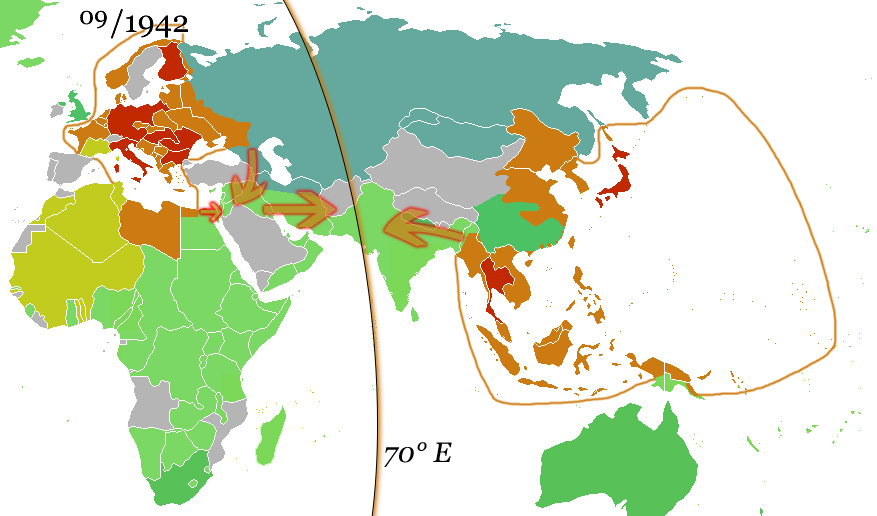Nigel Davies pops up on his blog after a lengthy period of inactivity to post his analysis of imperial logistical limits in World War Two:
There’s an old saying that David and Leigh Eddings paraphrased in one of their fantasy books: “any fool can raise an army, but you start running into trouble around suppertime.”
(Which is just a simplified way of saying that amateurs discuss tactics, but professionals think logistics.)
So let’s consider World War Two from the “who can afford what” perspective.
Any fool politician can promise Lebensraum, or a Mare Nostrum, or a Greater Asian Co-Prosperity Sphere: the problem comes when your nation lacks the resources to buy the equipment you need to make your plan stick.
It would be correct to suggest that the most rag-tag of “governments” can raise and equip an infantry force, and possible give it some artillery support. Mao and Tito spring to mind, but the Hungarians, Bulgarians and Iranians wouldn’t be far off. (One particularly entertaining description of the vast Operation Barbarossa – the Axis invasion of Russia – describes hundreds of gaily painted peasant carts masquerading as the Rumanian logistics column.)
Perhaps your government is a bit more advanced in both your tax collection and your industrial base, and you can manage a few armoured cars or tanks, and maybe even a nominal number of fighters and bombers. Think Nationalist China, Finland, Belgium, Greece and Turkey. That still doesn’t mean that you can also manage more than a token number of destroyers or coastal defence ships to manage defensive support. Frankly Canada, Australia, India and possibly even South Africa were greater “powers” than any of those.
The actual capacity to project power to other parts of the world in your own right – rather than under the auspices of your allies – requires not only a developed army and air force, but a naval element of – at a minimum – a good balanced cruiser force with adequate resources to back it up. Think Spain and Brazil… and, again, Australia.
Actually protecting far flung imperial possessions requires even a bit more than that. (Spain had discovered this while losing a brief war with the United States – which had run out of land to imperially conquer from the French, native Americans or Mexicans, and – after a couple of abortive attempts to invade Canada – therefore turned a quick takeover of overseas bits. Mainly Spanish possessions like the Philippines, but also including otherwise independent states like Hawaii.)
In fact the best defence of a far flung empire if you couldn’t match other people’s battle fleets was a good submarine force. Think the Netherlands, and particularly its half dozen cruisers and two dozen submarines protecting the Netherlands East Indies.
But it is a big jump from a token overseas empire, to being able to play with the big boys. The financial and industrial resources necessary to developing military forces capable of fighting other major powers is simply beyond the resources of more than half a dozen nations at any time. Which is why the term “Great Powers” has always come down to those capable of standing their ground against other great powers.





